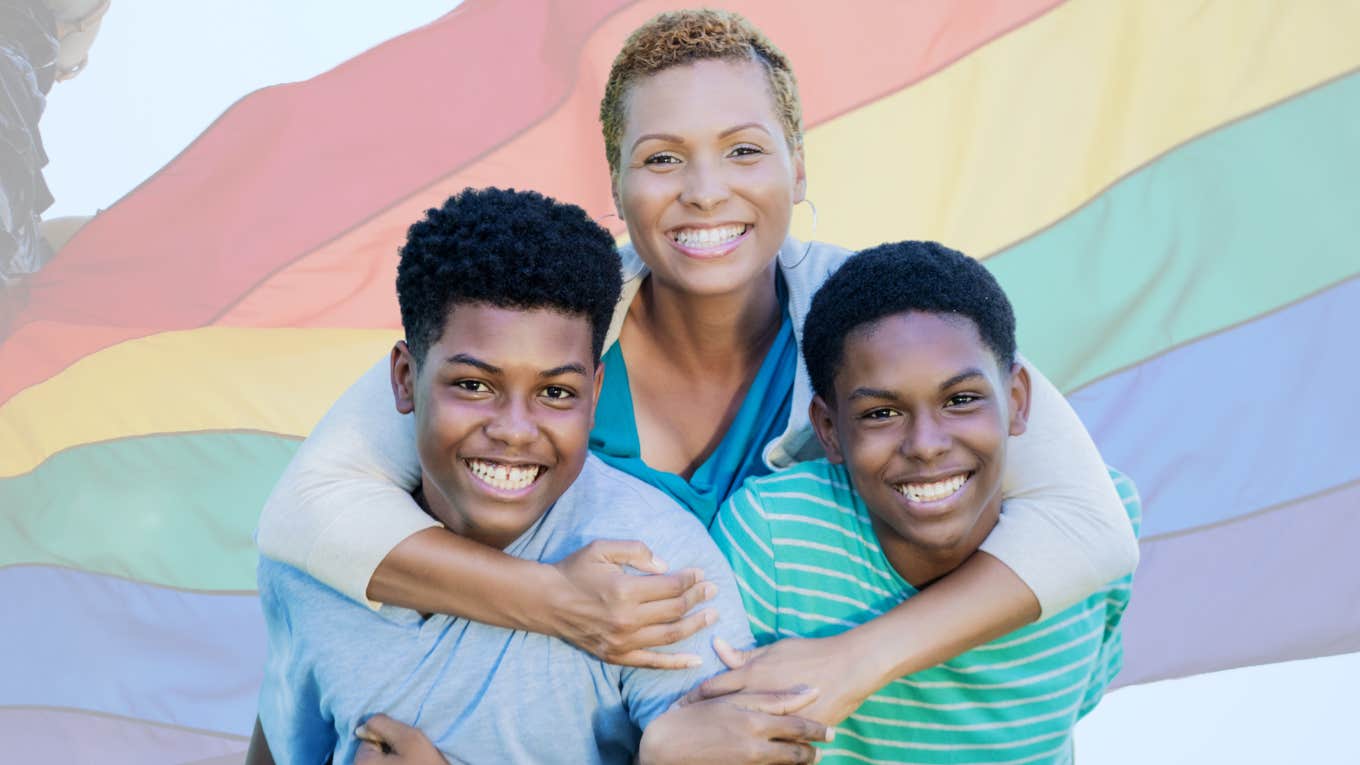Mom Tries To Explain The Concept Of 'Coming Out' To Her Gen Alpha Kids — & They're Mystified This Even Exists
“It doesn’t have to make sense for you two, but that’s how it is for a lot of people.”
 SDI Productions, Nancydowd / CanvaPro
SDI Productions, Nancydowd / CanvaPro Despite the ritual of “coming out” being both a fundamental rite of passage in early Queer communities and a fear-driven expectation for many individuals — the actual act of doing so isn’t necessarily emboldened in modern-day LGBTQ+ communities.
As younger generations trailblaze their own path in society, the necessity and ritual around “coming out” have waned. While it still holds great power and can be both empowering and reaffirming for many, much of the community agrees it's not as necessary as it might've been a few decades ago.
When a mom tried to explain the concept of ‘coming out’ to her Gen Alpha kids, they were equally mystified and outraged.
This sentiment was shared by mother Emmaline Carroll Southwell with her young Gen Alpha sons in an unprompted conversation on the way to school.
Southwell took to TikTok to share their exchange. “It’s confusing because, in some families and cultures, you’re not allowed to be gay,” she articulated after her kids asked about the ritual of “coming out.”
“What?! Why?” Her two young boys responded angrily from the backseat. Not only was it shocking to learn that someone could be hated, hurt, or even despised for who they loved, but they couldn’t imagine a world in which they were “forced” into sharing that information with anyone. They were taught that love has no boundaries or rules — you just love who you love.
While it’s clearly important to understand the roots, history, and biases that have instructed the homophobia many have dealt with in their lifetimes, Southwell's conversation is a reminder that these harmful narratives are from learned behaviors and not innate ones.
Not only were they floored realizing people weren’t accepted solely for being gay, but they were also distraught learning that many face ‘pain.’
“The term ‘coming out’ applies to people who need to come out to their families to let them know that they’re gay,” she continued, responding to her boys’ inquiry as to “why” they have to tell them with, “That’s a really great question.”
It’s their honest questioning and inherent rejection of homophobia that brought viewers to tears — myself included. Why do we have to justify our identities? Why is there so much hate in our lives? Of course, as adults who’ve lived through our own Queer experiences and learned of the jaded history, we know the answer, and it seems just as ludicrous as the boys make it seem.
 Georgijevic / CanvaPro
Georgijevic / CanvaPro
“Hopefully, we get to a point where people don’t have to do that. However, sadly, a lot of people are forced to do it, and it causes them a lot of pain,” she added. As her boys passionately shouted “No!” to their mom’s question about whether their household would “need to come out,” she reinforced their beliefs about love.
“Girls, boys, other genders,” they added from the backseat. “Whoever we want to love!”
Southwell's video and her boys’ responses are a hopeful reminder of what good parenting can do for future generations.
“This makes me so very excited for the world these Gen Alpha kids are going to create. I’m fully convinced that as parents, we just have to worry about raising them better than our generations were.”
Commenters found the video both heartwarming and hopeful, revealing that it’s entirely possible to grow up without the harmful stereotypes our society has labeled as inherent.
“I teared up when your son responded with ‘what the heck,’” one commenter wrote. “There was something so healing about hearing them understand and immediately reject the homophobia I grew up dealing with. Good job, mom.”
This mom’s short video is a reminder that good parenting can truly have the power to disassemble some of the most integrated stereotypes and biases we face today — from racial discrimination to homophobia to mental health stigma. Teach kids empathy and kindness, not competition and hate.
Zayda Slabbekoorn is a News & Entertainment Writer at YourTango who focuses on health & wellness, social policy, and human interest stories.

